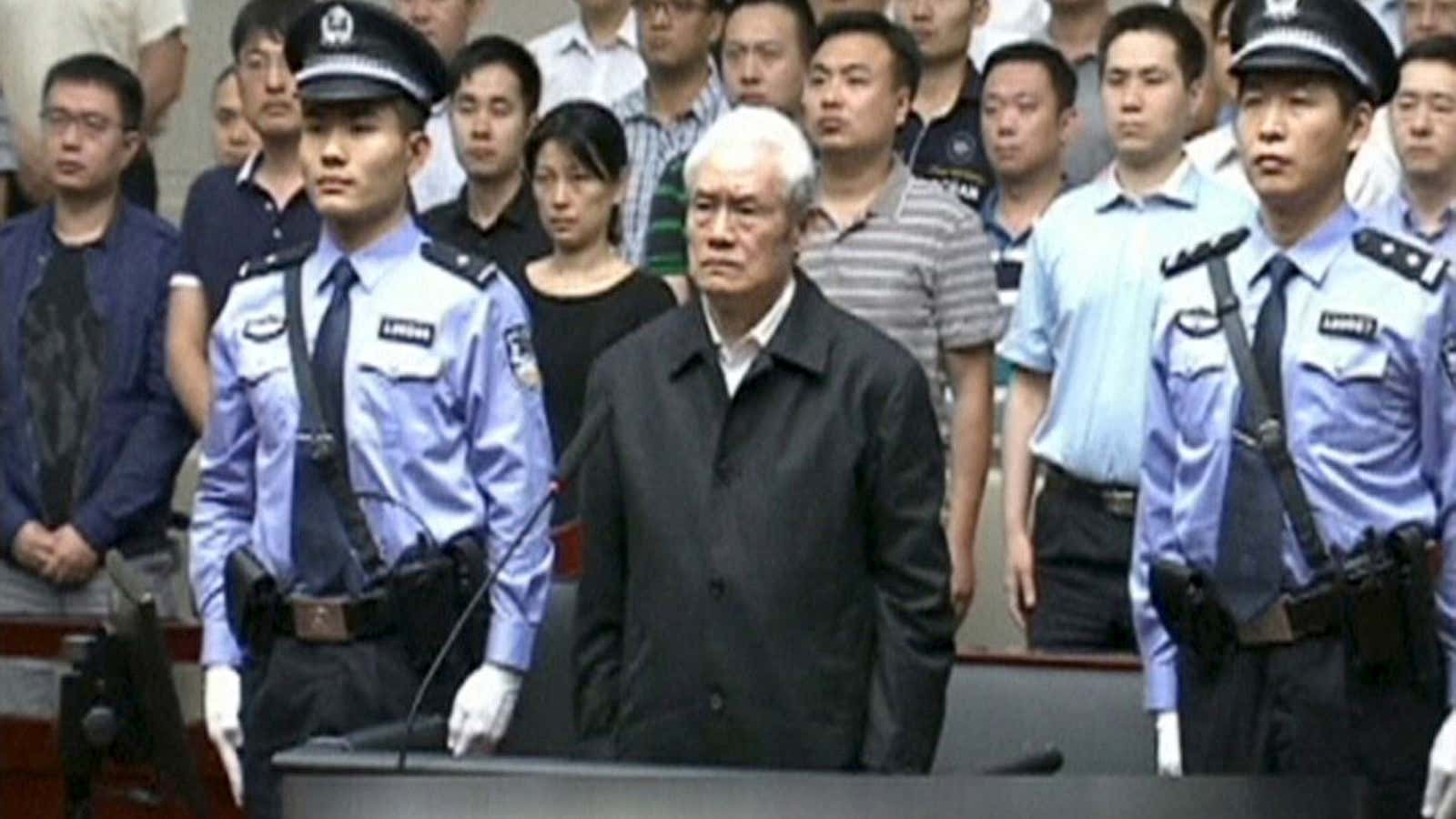China’s former security czar, who has now been sentenced to life in prison, chose the wrong soothsayer. Zhou Yongkang, the most powerful Chinese official to have been caught in the communist party’s ongoing anti-corruption campaign, depended on a qigong mystic better known as the “Xinjiang sage” for his ability to heal incurable ailments and predict the future.
What the sage, Cao Yongzheng, did not foresee was Zhou’s dramatic downfall. Zhou went from being one of the most powerful men in China to a frail silver-haired man, who admitted to taking $21 million in bribes and causing $240 million worth of “economic damage” to the state. Cao even provided testimony against Zhou over the ex-official’s possibly most serious charge, leaking state secrets. According to the official Xinhua new agency, Zhou leaked five “extremely confidential” and one “confidential” document to Cao.
Zhou is not the first Chinese official to fall under his sway. Another official charged with corruption, Li Chuncheng, the former party boss of Sichuan province, sought guidance from Cao and has been accused of abusing his power to engage in “feudalistic and superstitious acts.” Zhou’s son, Zhou Bin, is also reported to have been close with Cao.
Cao, from China’s Western Xinjiang province, reportedly got his start by predicting China would win the bid to host the 2008 Olympics, and has cultivated a network of contacts that stretches into the upper reaches of China’s political elite.
China’s elites seem to have a soft spot for qigong masters—the martial art based on channeling one’s qi, or energy, was all the rage in the country in the 1980s and 1990s. Another mystic, Wang Lin—with ties to the sisters of former leaders Jiang Zemin and Hu Jintao, Alibaba founder Jack Ma, actor Jet Li, and many others—came under scrutiny in 2013 after Chinese media began delving into his life and accused him of amassing wealth by connecting the powerful and elite contacts, not healing or fortune telling.
Zhou is best known for his weiwen, ”stability maintenance” policies that expanded China’s domestic security apparatus, surveillance, and extrajudicial detention centers known as “black jails.” He’s also known for dealing harshly with Tibetans, Uighurs and dissidents. One former official called Zhou’s years in power, the ”ten darkest years for law and order in China’s history” (link in Chinese).
Not much has changed. The current administration is cracking down on dissidents and China’s budding civil society as severely as ever. Zhou’s conviction took place in a secret trial held in Tianjin, disappointing those who believed an open one would help improve the transparency of China’s legal system. Comments on social media about the case have also been censored.
One censored blogger wrote (link in Chinese), “Even though Zhou Yongkang has fallen, Zhou Yong Kang’s weiwen system cannot fall. This is the heart of the matter.”
